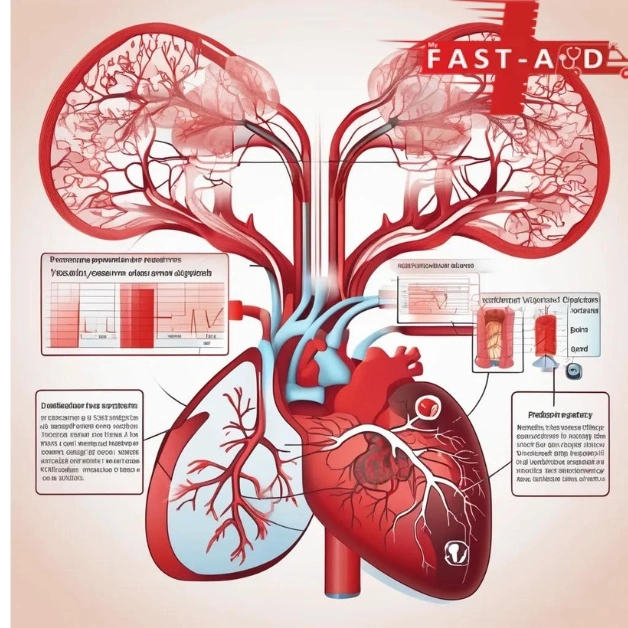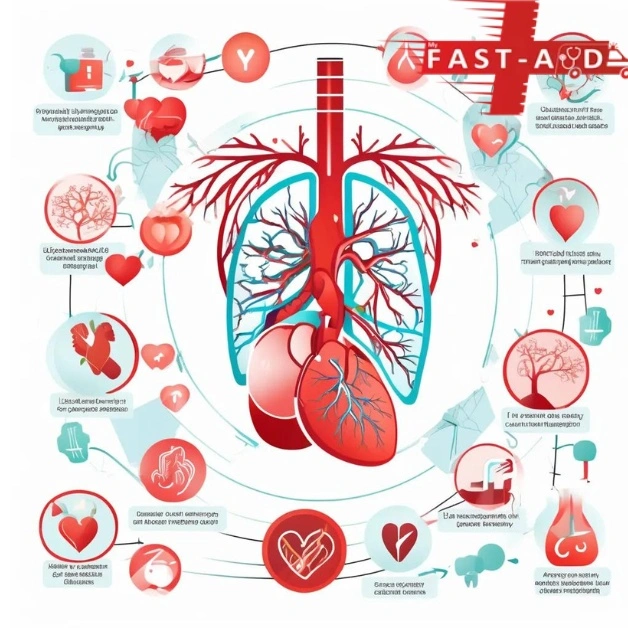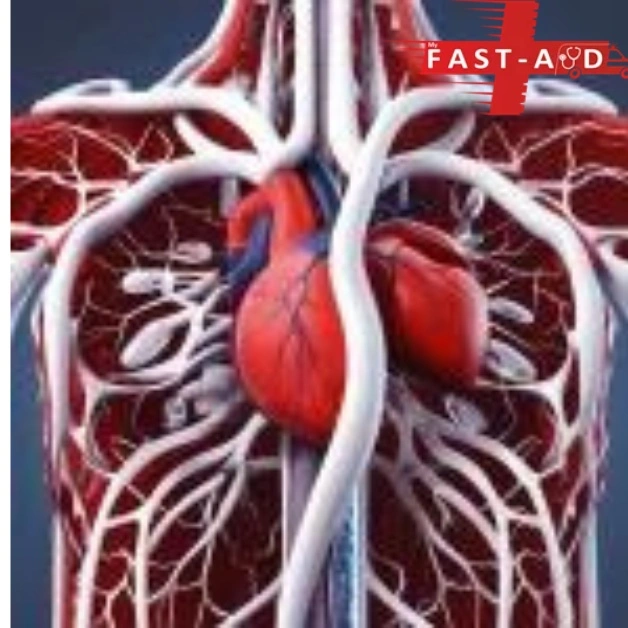Your cardio vascular system is essential for overall health, as it plays a critical role in circulating blood, oxygen, and nutrients throughout your body. Recognizing the early signs that your cardio vascular system needs immediate attention is crucial for preventing severe health complications. This article will highlight five alarming signs indicating your cardio vascular system may be under stress and requires prompt medical evaluation.
Ignoring symptoms related to your cardio vascular system can lead to serious issues, such as heart disease and stroke. Understanding the warning signs and taking swift action can significantly impact your health outcomes. In this guide, we’ll discuss five critical indicators that your cardio vascular system needs immediate attention, helping you stay proactive and informed.
Your cardio vascular system is responsible for maintaining heart health and blood flow, but when it begins to falter, the consequences can be severe. It’s vital to be aware of the signs that suggest your cardio vascular system is struggling. This article will explore five alarming symptoms that signal a need for urgent medical attention to ensure your cardio vascular health is properly managed.
Paying close attention to the health of your cardio vascular system is essential for long-term wellness. Many individuals overlook the warning signs that their cardio vascular system needs immediate attention. In this article, we will identify five critical signs to watch for and explain why they are crucial for maintaining a healthy cardio vascular system.
If you seek any emergency, feel free to visit MYFASTAD and get your 1st free consultation with the doctor. We provide on click consultation and you can read and gain information at this website via blogs.
Table of Contents
Importance of Monitoring Your Cardio vascular System

Regular monitoring of your cardio vascular system is crucial for maintaining overall health and preventing serious conditions. By keeping track of your heart health, you can detect early signs of potential problems, such as high blood pressure or irregular heartbeats, before they develop into more severe issues. Monitoring tools and regular check-ups help in managing risk factors and ensuring that your cardio vascular system is functioning optimally.
Understanding the state of your cardio vascular system allows for timely interventions and lifestyle adjustments. This proactive approach not only helps in avoiding major health events but also enhances your quality of life by preventing conditions such as heart disease and stroke. Regular cardiovascular monitoring provides peace of mind and supports long-term well-being.
Moreover, monitoring your cardio vascular system can aid in personalized health planning. By identifying specific risks and health trends, you can work with healthcare professionals to tailor prevention and treatment strategies to your unique needs. This individualized care approach improves outcomes and ensures that your cardio vascular system remains healthy.
Overview of Alarming Signs
Sign 1: Chest Pain or Discomfort in your Cardio vascular System
Chest pain or discomfort is a key indicator that something might be wrong with your cardio vascular system. This symptom can vary from sharp and stabbing to a dull ache or pressure. It is crucial to take chest pain seriously, as it could signal a range of issues from minor heart problems to serious conditions like a heart attack.
Understanding chest pain requires careful attention to its nature and duration. Pain that is persistent or accompanied by other symptoms like nausea or shortness of breath warrants immediate medical evaluation. Early detection and treatment are vital for addressing any underlying cardiovascular issues and preventing complications.
If you experience chest pain, it is essential to seek medical advice promptly. Ignoring or delaying treatment can lead to worsening of the condition and potentially severe outcomes. A healthcare professional can assess the cause of the pain and recommend appropriate treatment to safeguard your cardiovascular health.
Understanding Chest Pain
Chest pain is a significant symptom that often points to issues within the cardio vascular system. It can be caused by a variety of conditions, including heart disease, angina, or even gastrointestinal problems. Differentiating between the types of chest pain and understanding their implications is crucial for effective management and treatment.
Pain or discomfort in the chest may be related to the heart’s inability to get sufficient blood and oxygen. Recognizing whether the pain is acute or chronic can help determine the urgency and type of medical intervention required. It is important to monitor the pain and consult a healthcare professional for a precise diagnosis.
Evaluating chest pain involves examining additional symptoms and risk factors. By providing detailed information about the nature of the pain and associated symptoms, you can assist healthcare providers in diagnosing and treating the condition more accurately. Prompt medical attention can prevent serious cardiovascular issues and enhance overall health outcomes.
When to Seek Help for Cardio vascular System
Knowing when to seek help for chest pain is critical for maintaining cardiovascular health. If the pain is severe, persistent, or accompanied by other symptoms such as shortness of breath or dizziness, immediate medical attention is necessary. Timely intervention can prevent potential complications and address serious conditions like heart attacks.
Even if the chest pain seems mild, it is advisable to consult a healthcare professional if it is unusual or unexplained. Early evaluation can help determine if the pain is related to a more serious cardiovascular issue or a less severe condition. Understanding the right time to seek help can significantly impact your overall health and safety.
Regular check-ups and being proactive about chest pain can lead to early detection and treatment of underlying issues. Your healthcare provider can perform diagnostic tests to determine the cause of the pain and recommend appropriate treatment strategies to manage and improve your cardiovascular health.
Sign 2: Shortness of Breath
Causes of Shortness of Breath
Shortness of breath can be a sign of various issues with the cardio vascular system. Common causes include heart failure, coronary artery disease, or fluid buildup in the lungs. Identifying the underlying cause is essential for appropriate treatment and management of the condition.
Sometimes, shortness of breath can be attributed to less severe conditions, such as respiratory infections or physical exertion. However, persistent or sudden-onset shortness of breath should be evaluated by a healthcare professional to rule out serious cardiovascular problems and ensure timely intervention.
Understanding the root cause of shortness of breath involves assessing other symptoms and risk factors. Accurate diagnosis through medical evaluation can lead to effective treatment plans and help prevent complications related to cardiovascular health.
Recognizing Serious Symptoms
Recognizing when shortness of breath is a serious symptom is crucial for your cardiovascular health. If the shortness of breath is sudden, severe, or accompanied by symptoms like chest pain, dizziness, or swelling, it may indicate a more serious underlying issue that requires immediate medical attention.
Persistent shortness of breath, especially if it worsens over time or occurs without any obvious cause, should be evaluated by a healthcare professional. Early assessment and diagnosis are key to managing any potential cardiovascular conditions effectively and preventing more severe complications.
Monitoring and addressing shortness of breath promptly can help maintain overall cardiovascular health. Regular check-ups and being aware of any significant changes in your breathing patterns can ensure that you receive timely treatment and care.
Sign 3: Unexplained Fatigue
How Fatigue Relates to Cardiovascular Health
Unexplained fatigue can be a significant indicator of cardiovascular issues. Fatigue may occur when the heart is not pumping blood efficiently, leading to decreased oxygen and nutrient supply to the body’s tissues. This can be a symptom of heart disease, heart failure, or other cardiovascular conditions.
Understanding the link between fatigue and cardiovascular health involves evaluating other symptoms and overall well-being. Persistent fatigue that affects daily activities or occurs without a clear cause should be investigated to determine if it is related to underlying heart problems.
Addressing unexplained fatigue early can lead to better management of cardiovascular conditions. Consulting a healthcare professional for a thorough evaluation can help identify the cause and develop an appropriate treatment plan to improve your cardiovascular health and overall energy levels.
Differentiating Between Normal and Alarming Fatigue
Distinguishing between normal and alarming fatigue is important for maintaining cardiovascular health. Normal fatigue often results from physical activity or lack of sleep and typically resolves with rest. In contrast, alarming fatigue is persistent, unexplained, and affects your ability to perform daily tasks.
Alarming fatigue may be a sign of cardiovascular issues, such as heart disease or poor circulation. If fatigue is severe, persistent, or associated with other symptoms like shortness of breath or chest pain, it is crucial to seek medical evaluation to rule out serious underlying conditions.
Regular monitoring and understanding the patterns of your fatigue can help in managing your cardiovascular health effectively. Consulting with a healthcare provider can ensure that any significant changes in fatigue levels are addressed promptly to maintain overall well-being.
Sign 4: Swelling in the Legs or Ankles
Possible Reasons for Swelling
Swelling in the legs or ankles can be indicative of various cardiovascular issues, including heart failure or venous insufficiency. When the heart is unable to pump blood efficiently, fluid can accumulate in the lower extremities, leading to noticeable swelling.
In addition to cardiovascular problems, swelling can result from other conditions such as kidney issues or prolonged sitting. Identifying the cause of the swelling requires a thorough evaluation by a healthcare professional to determine the appropriate treatment and management strategies.
Early detection of swelling is important for addressing potential cardiovascular issues. By monitoring changes in swelling and seeking medical advice, you can receive timely intervention and prevent further complications related to your cardio vascular system.
Importance of Early Detection
Early detection of swelling in the legs or ankles is crucial for effective management of cardiovascular health. Swelling can be an early warning sign of heart failure or other serious conditions, and addressing it promptly can prevent the progression of these issues.
Monitoring for swelling and seeking medical evaluation as soon as it occurs can lead to better treatment outcomes. Early intervention can help manage the underlying condition and reduce the risk of more severe cardiovascular problems.
Regular check-ups and being attentive to changes in your body can enhance your overall cardiovascular health. Timely detection and management of swelling can help maintain a healthy cardio vascular system and prevent complications.
Sign 5: Irregular Heartbeat of Cardio Vascular System
Types of Irregular Heartbeats
Irregular heartbeats, or arrhythmias, can manifest in various forms, including atrial fibrillation, ventricular tachycardia, or premature ventricular contractions. These irregularities in heart rhythm can affect how effectively the heart pumps blood and may indicate underlying cardiovascular issues.
Understanding the different types of irregular heartbeats is essential for proper diagnosis and treatment. Each type of arrhythmia has distinct causes and implications for cardiovascular health, and recognizing these differences can guide appropriate management strategies.
Evaluating an irregular heartbeat involves diagnostic tests and a thorough assessment by a healthcare professional. Identifying the type and severity of the arrhythmia is crucial for determining the best course of action to address the condition and maintain cardiovascular health.
When to Get a Diagnosis
Seeking a diagnosis for an irregular heartbeat is important for managing cardiovascular health effectively. If you experience symptoms such as palpitations, dizziness, or shortness of breath, it is crucial to consult a healthcare professional for a comprehensive evaluation.
Prompt diagnosis of an irregular heartbeat can lead to timely treatment and management of underlying cardiovascular issues. Early intervention can prevent complications and improve your overall heart health and quality of life.
Regular monitoring and awareness of your heart rhythm are key to maintaining cardiovascular health. Consulting with a healthcare provider when you notice irregular heartbeats can help in managing the condition and preventing potential health problems.
Conclusion

Summary of Key Signs
Monitoring your cardio vascular system involves recognizing key signs such as chest pain, shortness of breath, unexplained fatigue, swelling in the legs or ankles, and irregular heartbeat. Each of these symptoms can indicate underlying cardio vascular issues and should be evaluated by a healthcare professional for accurate diagnosis and treatment.
Understanding these signs and their implications for your cardiovascular health is essential for maintaining overall well-being. Early detection and intervention can help manage conditions effectively and prevent more serious complications related to heart health.
Encouragement for Regular Check-Ups and Health Monitoring
Regular check-ups and health monitoring are vital for maintaining a healthy cardio vascular system by staying proactive and attentive to any changes.

